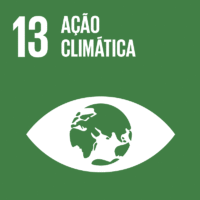Ciência_Iscte
Publicações
Descrição Detalhada da Publicação
Título Revista
World Leisure Journal
Ano (publicação definitiva)
2023
Língua
Inglês
País
Reino Unido
Mais Informação
Web of Science®
Scopus
Google Scholar
Esta publicação não está indexada no Overton
Abstract/Resumo
The current climate emergency and the emergence of a stagflation scenario in Europe have revealed the scarce presence of environmental and resilience-related goals not only in the economic and financial viability plans of the nightlife industry but also in the different tools of nightlife governance already introduced in some European cities. In fact, the recovery and resilience plans of more than a third of the countries of the European Union, which constitute the central mechanism for the ongoing ecological urban transition, do not mention the nightlife industry nor the creative night culture, whose importance is vital for many urban festivals. Despite that, some nightlife entrepreneurs have begun to adapt their businesses to the current urban ecological transition in Europe. Meanwhile, a large part of the scientific community does not seem to be interested in the economic and environmental challenges affecting Europe’s nightlife industry. For the authors of this article, if nightlife is revealed to be central to the socio-emotional wellbeing of many people in our (post-)pandemic world, the “greening” of the nightlife industry should arise as a central topic in the short and medium-term for academics researching in the fields of tourism, hospitality, leisure, and urban studies.
Agradecimentos/Acknowledgements
--
Palavras-chave
Nightlife industry,Nocturnal cities,Climate emergency,Urban ecological transition,Europe
Classificação Fields of Science and Technology
- Psicologia - Ciências Sociais
- Economia e Gestão - Ciências Sociais
- Sociologia - Ciências Sociais
Registos de financiamentos
| Referência de financiamento | Entidade Financiadora |
|---|---|
| CEECIND/01171/2017 | Fundação para a Ciência e a Tecnologia |
| UIDB/04647/2020 | Fundação para a Ciência e a Tecnologia |
Contribuições para os Objetivos do Desenvolvimento Sustentável das Nações Unidas
Com o objetivo de aumentar a investigação direcionada para o cumprimento dos Objetivos do Desenvolvimento Sustentável para 2030 das Nações Unidas, é disponibilizada no Ciência_Iscte a possibilidade de associação, quando aplicável, dos artigos científicos aos Objetivos do Desenvolvimento Sustentável. Estes são os Objetivos do Desenvolvimento Sustentável identificados pelo(s) autor(es) para esta publicação. Para uma informação detalhada dos Objetivos do Desenvolvimento Sustentável, clique aqui.

 English
English



